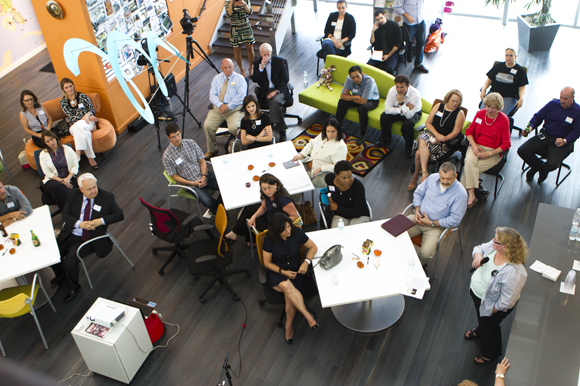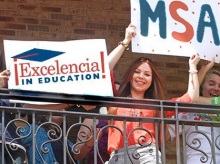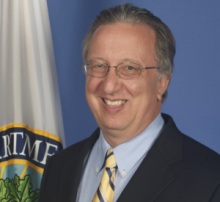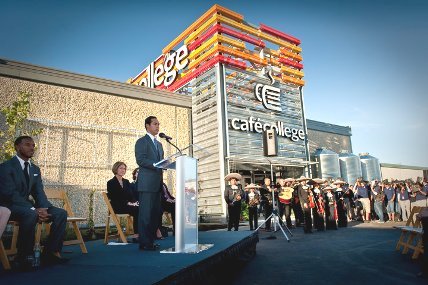Features

Joe Cortright, CEOs for Cities
Monday, January 28, 2013
You may think getting a college education is too expensive, and you may be right. But it's not as expensive as the consequences of not getting a college education, according to recent studies about the economic success of degree holders.

Amy Kuras
Monday, January 28, 2013
Today's federal financial aid system was built for yesterday's student. Is it possible to change it during another year of budget cuts and debt ceiling crises? A new report from IHEP is cautiously optimistic.

Amy Kuras
Monday, December 17, 2012
How cities competing for the Talent Dividend Prize are sharing data, pooling resources, and supporting one another, even amid competition.

Amy Elliott Bragg
Monday, December 17, 2012
"Good work ... doesn't come out of a 90-minute committee meeting. You have to create a relationship that's deeper and more enduring."

Noel Harmon, National Director of the Talent Dividend
Monday, December 17, 2012
A new report links equity in education with the future of American economy. Why it's imperative that we listen up and take action.

Amy Elliott Bragg
Monday, November 19, 2012
Michelle Cooper recommends a three-pronged approach to college completion among minority students: preparedness, affordability, and workforce alignment. Plus, thoughts on what the recent election means for higher ed.

No�l Harmon, National Director of the Talent Dividend
Monday, November 19, 2012
As we prepare to convene in Philadelphia this spring, we should reflect on the courage of our nation's founders and ask how we can provide true equality for all within our higher education system.

Amy Elliott Bragg
Monday, November 19, 2012
We can't reach our local and national goals for college achievement if we don't focus on equity. Luckily, says one leader, building strategies for success among minority populations "isn't rocket science."

The Civic Commons
Monday, November 19, 2012
Who uses dual enrollment programs? Why or why not? Do they work? How do we make them more equitable? An excerpt from our conversation with Tom Lasley of Learn to Earn Dayton.

Amy Elliott Bragg
Monday, October 22, 2012
Susan Johnson, Program Officer for the Lumina Foundation, talks about efforts to improve college success across the pipeline, from K-12 and earlier to adults over 50, all with the aim of increasing the percentage of degree holders nationwide to 60% by 2025.

Marty Levine
Monday, October 22, 2012
From aligning curricula to waiving parking fees, how cities, higher ed institutions, and national foundations are helping students realize the dream of college achievement.

Catherine Bittar, CEOs for Cities
Monday, October 22, 2012
Skeptics are quick to claim that the "college bubble" is about to burst. But these claims are based on misconceptions about the benefits of postsecondary education and, more significantly, the costs of attending college.

Amy Elliott Bragg
Monday, September 24, 2012
Greg Darnieder, Senior Advisor to Secretary Arne Duncan on College Access, wants cities participating in the Talent Dividend to know this: You can make an impact.

No�l Harmon, National Director of the Talent Dividend
Monday, September 24, 2012
Where the Talent Dividend Network has been since July and where we're headed next.

Amy Elliott Bragg
Monday, September 24, 2012
As efforts to improve college access expand to improve college success, too, we look at what's working in Michigan and San Antonio, and where we hope to be as a nation in the next ten years.